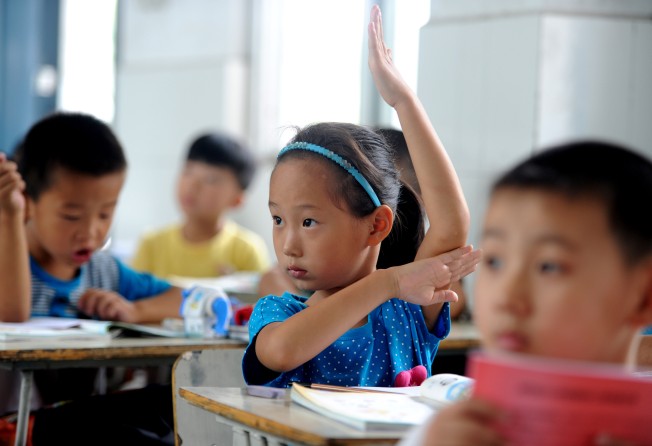BRICS countries' investment in education will change the world
Irina Bokova says by working together, bloc members can expect more solid foundation for growth

At their recent summit in Fortaleza, Brazil, the leaders of the BRICS nations confirmed their resolve to become the world's new global economic powerhouse and leading architect of the international development agenda. Their decision to create a US$100 billion development bank and currency reserve was the most visible demonstration of this collaborative effort.
Less visible, but strategically critical for their future, was their decision to work together to accelerate development of their education systems. Each of the five countries - Brazil, Russia, India, China and South Africa - has made phenomenal progress in this area in recent years. By combining the know-how they have accumulated and their capacity to innovate, they could fundamentally change the shape of education globally.
A new Unesco report, presenting a detailed snapshot of education in the BRICS countries, shows they now have the school systems to enrol all children in primary education. They have nearly achieved gender parity in participation, as well. Only a decade ago, these two goals seemed almost impossible.
Enrolments in pre-primary and secondary education have also grown dramatically. The number of secondary school students in India and China alone shot up by 42.7 million and 13.5 million respectively between 2000 and 2011/2012. Still, lower secondary remains out of reach for a large number, in particular in India, where 16.4 million adolescents are out of school.
The development of mass higher education systems is at an early stage (except in Russia) but a major shift in the global distribution of students is already under way. The number of higher education students has increased radically, with Brazil, China, India and Russia accounting for 39.1 per cent of the global total in 2012. China alone accounts for 16.8 per cent.
Given that one in three students in the world today lives in one of the BRICS countries, these developments represent a tipping point in the quest to provide quality education for all.
Much of this progress is due to the priority given to education by the BRICS governments. The scale of their challenges, including the size and diversity of their populations and the rapid growth of their economies, have driven them to find creative solutions.
Last year, Brazil passed a law earmarking 75 per cent of royalties from oil extraction for education, and the remaining 25 per cent for health. This year, royalties are expected to reach US$800 million.
Since April, India has been implementing a law requiring companies whose net worth, turnover or net profit are above specified thresholds to spend at least 2 per cent of their profits on corporate social responsibility activities, including the promotion of education and vocational skills, along with health and nutrition.
China and Russia are shoring up pre-primary education with vast programmes to build and refurbish kindergartens, and to provide families with financial incentives to enrol their children.
In rural China, multi-grade schools and other creative approaches have been introduced to ensure that all young children "left behind" as their parents migrated to cities can attend. Coupled with the abolition of school fees, food allowances and subsidies to students in boarding schools, this is part of a concerted effort to bridge China's rural-urban divide in educational and economic development.
To tackle inherent inequalities that were the legacy of apartheid, South Africa has made the poorest 40 per cent of schools "no-fee schools", and has established a financial aid scheme to provide bursaries and loans to disadvantaged students in tertiary education.
Both Brazil and South Africa levy funds from employers for technical and vocational education aimed at improving workers' skills and aligning them with labour market needs.
Despite these encouraging trends, daunting hurdles remain. Poor families are struggling to feed their children, resulting in chronic malnourishment during children's earliest years, causing lifelong harm to their learning ability. Despite the huge expansion of recent years, only one in five young people in India and about one in four in China attends higher education.
Youth unemployment remains a daunting problem, reflecting an acute disconnect between education and labour market requirements.
The Unesco study confirms that the BRICS countries could effectively tackle these issues by working more closely together to improve education quality.
A first step towards this was made at a meeting of BRICS education ministers held at Unesco in November last year. The approval given by national leaders in Fortaleza has the potential to unleash an enormous movement in the BRICS that will not only offer their young generations a brighter future, but also reinforce the foundations of their own growth and prosperity.
The rest of the world should sit up and take notice.
Irina Bokova is director general of Unesco